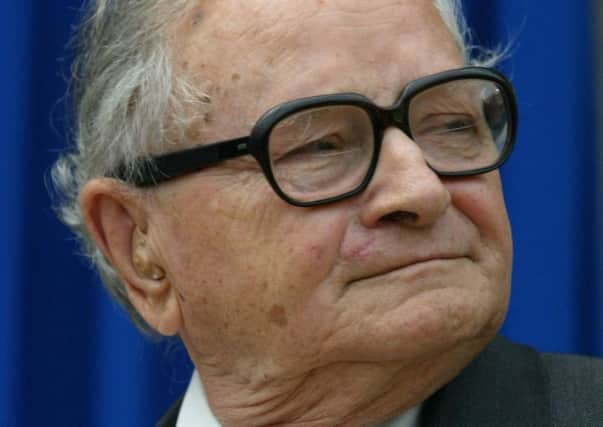Rafi Eitan, spy


Eitan was one of the founders of Israel’s intelligence community and among its most prominent figures there and abroad.
The 1960 operation to capture Eichmann and bring him to trial in Jerusalem was perhaps Mossad’s most memorable mission.
Advertisement
Hide AdAdvertisement
Hide AdIt brought to life the horrors of the Nazi “Final Solution”, of which Eichmann was a prime architect, creating a blueprint to wipe out the entire Jewish population of Europe.
Eichmann was convicted in 1961 of war crimes and crimes against humanity and was hanged the following year, in the only instance of the death penalty having been invoked by Israel.
He had fled Germany after the Second World War and assumed the name Ricardo Klement in Buenos Aires. Eitan’s seven-man team grabbed him on his way back to his home, shoved him into a car and spirited him to a safe house.
In the back seat of the car, one agent shoved a gloved hand inside Eichmann’s mouth in case he had a cyanide pill hidden in a tooth, a last resort of some other former Nazis.
Advertisement
Hide AdAdvertisement
Hide AdEitan identified Eichmann by searching his body for distinctive scars on his arm and stomach, recalling years later: “And once I felt it I was convinced. This is the man – we got Eichmann.”
But most of his exploits with Mossad still remain unknown to the general public, its director, Yossi Cohen, said.
He was, however, known for being the handler of the Pentagon spy Jonathan Pollard, a US intelligence analyst who passed information to Israel in the 1980s.
Pollard was arrested in 1985 and pleaded guilty, in an espionage affair that embarrassed Israel and severely tarnished its relations with the United States.
Advertisement
Hide AdAdvertisement
Hide AdEitan claimed his actions were sanctioned by his superiors, but eventually was forced to resign his post.
He went into business and later entered politics, scoring an election sensation in 2006 as head of the Pensioners’ Party, garnering seven seats in the 120-seat parliament and becoming a cabinet minister in Ehud Olmert’s government.